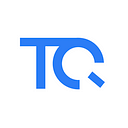Tezos has always been synonymous with credible, decentralized governance.
As the number of decentralized applications and community initiatives in the Tezos ecosystem grows, so does the need for community governance and, of course, decentralized autonomous organizations (DAOs).
Today we’re excited to announce the Homebase project, which will enable anyone to create and interact with DAOs on Tezos based on a new smart contracts framework called BaseDAO.
Homebase empowers developers and communities to launch and participate in Tezos-based DAOs, with planned projects ranging from fan collectives to governance tokens to Tezos community initiatives. Homebase features an intuitive user-interface to customize and launch a DAO in just a few steps, and provides DAO participants a dashboard to create and vote on proposals that can modify or upgrade governed smart contracts. A beta release of Homebase is expected for early March.
Among the initial v0.1 contract templates in today’s release are TreasuryDAO, which enables community management of a treasury, and RegistryDAO, which enables governance of arbitrary smart contracts, such as a token registry or parameters of a decentralized marketplace. BaseDAO also includes support for off-chain voting via Permit (TZIP-17) and will be updated accordingly as new Tezos capabilities (e.g. tickets) become available. A BaseDAO SDK in TypeScript is also under development and planned for release in February.
Key Resources
BaseDAO
The BaseDAO smart contract framework enables anyone to create a DAO on Tezos for the decentralized governance of resources, registries, or rules. The framework allows creators to finetune their DAO to create customizable proposals which represent arbitrary code as lambda functions.
A proposal executed by a BaseDAO can be as simple as transferring some funds to an address or, like Tezos, as complex as updating the DAO to an entirely new set of rules. BaseDAO governance cycles include two periods: a proposal period and a voting period. Proposals are submitted during the proposal period and then DAO token holders who have frozen their assets in the DAO (“staking” in many Ethereum DAOs) vote on whether to execute the proposals.
At the moment, the initial specification and contracts have been created and prototyped in LIGO and in Michelson using Lorentz. Included are some initial templates:
- A simple didactic template with no custom logic called TrivialDAO
- A template with custom logic called GameDAO to govern a MOBA-like game
- Two practical implementations to support Treasuries and Registries (arbitrary contract governance)
BaseDAO is based on the FA2 token standard, represents proposal metadata using TZIP-16, and includes permit-based “feeless” voting.
Treasury DAO
A Treasury DAO enables token holders to control a treasury of assets and propose transactions that are subsequently voted on. This could be a group of actors coordinating on funding public goods such as basic developer infrastructure, or even an individual project managing their own treasury to fund open source development based on community needs.
Registry DAO
A Registry DAO allows participants to govern arbitrary smart contracts. This can range from a list of oracles providing price feeds to a decentralized lending protocol, or even a supported token list for trading on a decentralized marketplace.
For DAO participants, the means viewing all the information and metadata associated with a particular DAO including the percentage of locked tokens, active proposals, and token holder information will be available. After connecting a wallet, DAO participants will have the ability to freeze their tokens to vote on active proposals, and submit new ones to enact changes. The proposal interface will enable users to fill in simple forms in order to submit proposals to the DAO, which will then be voted on in subsequent voting phases.
Homebase
Above is a preview of the Homebase is an intuitive UI for creating and interacting with DAOs created using the BaseDAO framework. The interface enables DAO creators to spin up DAOs based on several templates, select parameters of the governance process (e.g. quorum) and allocate an initial distribution of the DAO’s native token. It will also include integration with exciting new Tezos capabilities like Tezos Domains.
Initially, Homebase will support the core behavior requested by users and the community: parameter selection (e.g. similar to Compound) and treasury management DAOs. Over the coming weeks and months, we’ll be enhancing and extending these templates for new exciting applications such as fractional ownership of NFTs and DAOs for simple off-chain vote signaling like Snapshot.
— — —
A special thanks to all those who have provided feedback on the design of BaseDAO thus far. As with prior releases, we actively welcome feedback on Homebase and BaseDAO, particularly as we and others in the community work to implement it for user governance of their applications and community initiatives.
Reach out if you’d like to get involved!
